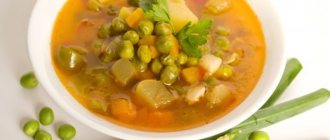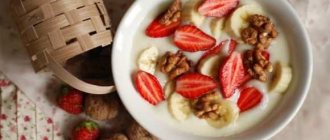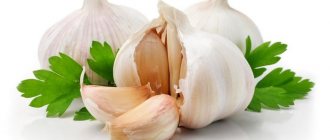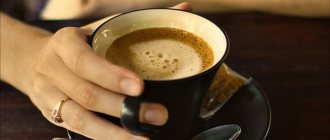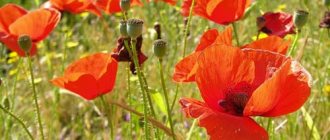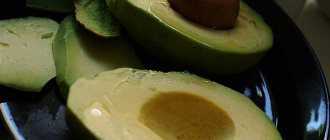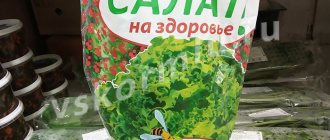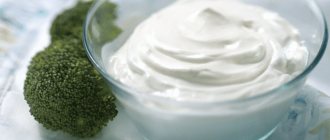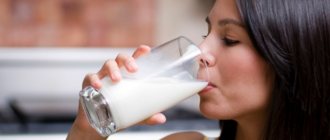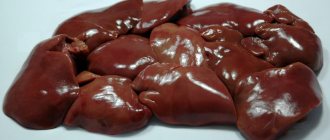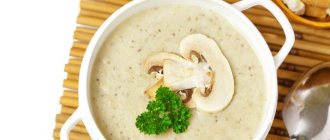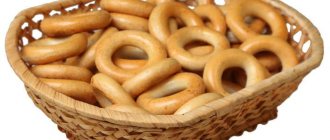In the first year of motherhood, a woman inevitably has to decide what she can now eat and what she can’t? We have to exclude the most common foods, and the question arises: is bread ok while breastfeeding or not? It's not just about the child's health. Sometimes, due to hormonal changes, lactation is accompanied by weight gain, and from this point of view, flour is “dangerous”.
To exclude or not
When asked whether a nursing mother can eat bread, doctors answer unequivocally: yes! It is rich in carbohydrates - sources of necessary energy, and lactation is associated with serious energy loads. With bread we get up to 40% of minerals and vitamins, without which normal life activity is impossible. The fiber it contains is good for the intestines.
It is also important to take into account gastronomic traditions. In Russia there is a proverb: “Bread is the head of everything.” This product has been and remains the basis of nutrition for many generations; its absence deprives one of psychological balance and negatively affects digestion. The question of whether bread can be given to nursing mothers is not even raised; it is not excluded from the diet for a single day.
The only thing that threatens the child is constipation due to the mother’s excessive consumption of flour. You can solve the problem by limiting yourself to 250 grams per day and choosing varieties wisely.
Can nursing mothers eat rye, whole grain, yeast-free or wheat bread?
How much can you eat?
If a nursing mother is underweight or is within the normal range, the amount of bread in the daily menu can be left at the usual level, making adjustments to the choice of bakery products - it is worth replacing white bread with multigrain or black bread. If you tend to be overweight, the consumption of this product should be reduced to one or two slices per day.
If it is difficult for a mother to give up her favorite baked goods while breastfeeding, then eating a small bun is acceptable in the first half of the day, preferably during breakfast. To avoid gaining weight, flour should not be consumed in the evening or at night.
You should not refuse baked goods - this can cause harm to your health. If a nursing mother is planning a strict diet, she cannot do it without consulting a doctor.
Subscribe to our VKontakte group
Choosing a variety: is it possible for nursing mothers to eat black bread?
This variety is baked from rye flour, adding second-grade wheat. It contains many useful substances:
- complex carbohydrates;
- vitamins B, PP, E;
- microelements (zinc, calcium, magnesium).
Eating such bread while breastfeeding is acceptable and necessary, excluding only the first week after a caesarean section. It is also contraindicated in case of increased gas formation in the child’s intestines.
You need to carefully study the composition. If it contains malt, it is better to avoid such a product before introducing complementary foods, and even then eat a little at a time. Malt is rich in glucose, which makes it easy to gain weight.
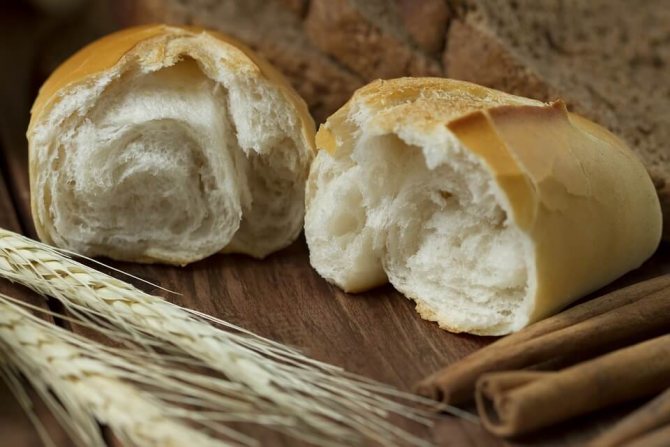
Types of bread: comparison of varieties
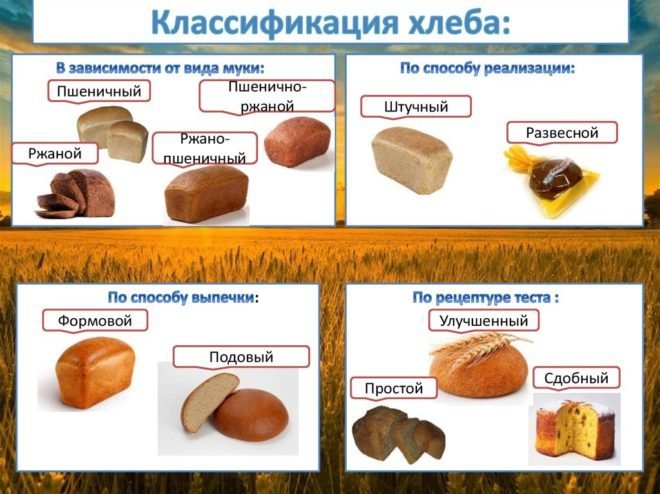
Only a well-baked product will be digested correctly. If the bun is not aged in the oven, additives and yeast irritate the walls of the stomach and intestines, are not digested, and cause excess weight and poor health.
To check the quality, you need to squeeze the loaf: if the shape instantly returns to its original shape, it means that preservatives have been added and the baking time has not been maintained. A good quality product will remain deformed for a while, but will then recover.
But the main characteristics of bakery products depend on the type and grinding of flour.
White bread
The product is high in calories. When processing grains, only the kernel is used, and the shells containing vitamins and minerals are removed. The dough contains 5-8% yeast, so the bun looks airy and rosy. It is not recommended for a nursing mother to eat white bread, as the product provokes weight gain and the development of cellulite.
Rye flour varieties
Recommended for the diet. The calorie content is normal, the preservation of nutrients during flour processing is up to 70%. Daily consumption improves the condition of the nervous system, stimulates hematopoiesis, and removes toxins and waste. Flavors and dyes are added to some types of products, so it is important to study the composition. For example, Borodino bread can cause heartburn, as it often contains cumin, coriander, and anise.
Bran bread
This product is baked according to the standard, but the third part of the flour is bran. The additive consists of ground grain shells, which concentrate 85% of the nutrients. It is better to choose rye, oat, and buckwheat bran. Bread with bran during breastfeeding is recognized as a safe and healthy product. 100 grams contain 40% of the daily requirement of vitamin B, which is responsible for cell renewal and cleansing the body. The result is healthy nails, clear skin, thick hair.
Yeast-free
The product is prepared using natural sourdough without yeast. There is no sugar, eggs or artificial additives. Whole grain rye flour is recommended: in this case, the set of vitamins (40-45% of the norm) and minerals is preserved. Yeast-free bread is recognized as the most healthy and nutritious for mother and baby. It is better to prepare it at home and consume it immediately after baking. This bread restores metabolism, water-salt metabolism, and removes bile.
Is it possible for a nursing mother to have white bread?
This concept includes baked goods and loaves. When baking them, eggs, milk, and sugar are used along with first-grade wheat flour. The calorie content is high, which can lead to extra pounds, and fiber and other beneficial elements are lost when refining the flour. A significant glycemic index threatens to increase blood sugar.
White bread will not be beneficial for breastfeeding. It is better to give it up or at least eat no more than one slice a day and only in the morning.
Composition and benefits of bread for breastfeeding
Bread saturates the body with elements vital for the female and child’s body after childbirth. It is worth observing moderation in the consumption of any type of baked goods. The daily norm is 2 – 3 pieces.
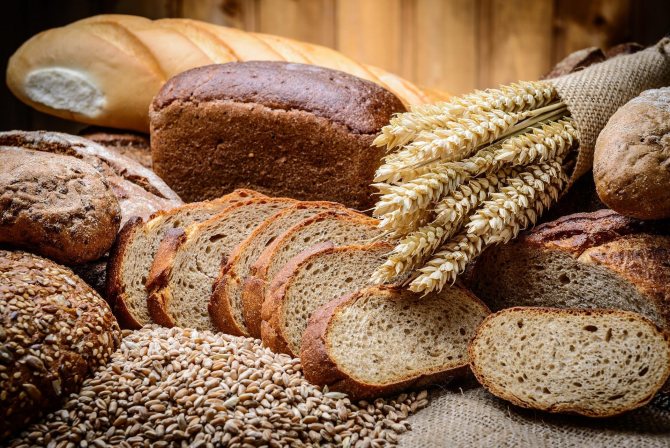
Properties
The beneficial properties are due to its composition.
| Name of valuable compound | Main action |
| B vitamins | Cell renewal, cellulite prevention, improvement of the appearance of nails, epidermis, hair. |
| Minerals | Improving blood formation, strengthening the walls of blood vessels, muscles, regulating water-salt metabolism. |
| Cellulose | Restoring the functioning of the digestive tract. |
| Vegetable protein | Strengthening protective properties, preventing the accumulation of “bad” cholesterol, cleansing the body of harmful elements. |
| Complex carbohydrates | Saturating the body with energy. |
When answering the question whether it is possible to eat black bread while breastfeeding, it should be noted that rye bread is healthier than wheat bread. The iron (Fe) content in it is three times higher. This substance is necessary for mothers whose birth took place by caesarean section.
Characteristics of the main types
Below are the most common types of bread with a description of each.
| Name | Calorie content in 0.1 product | Characteristic |
| Wheat | 262 kcal | Contains a large amount of starch and salt. Difficult to digest and assimilate. Low content of valuable substances. |
| Rye | 165 kcal | It is baked from flour, which after processing retains up to 65 - 70% of natural elements. |
| With bran | 248 kcal | It has a high concentration of B vitamins and is made from coarse flour. |
| Yeast-free | 177 kcal | It has a specific taste and is quickly and easily absorbed by the gastrointestinal tract. |
Wholegrain
Baking from whole wheat grains is an ancient tradition, but now such a product is considered high-grade. Wheat retains all the beneficial substances:
- enzymes;
- vitamins;
- amino acids.
Such baking improves digestion and metabolic processes, unless the technology has been disrupted. You need to study the composition indicated on the label. If flour is mentioned along with whole grains, you should not choose such a product.
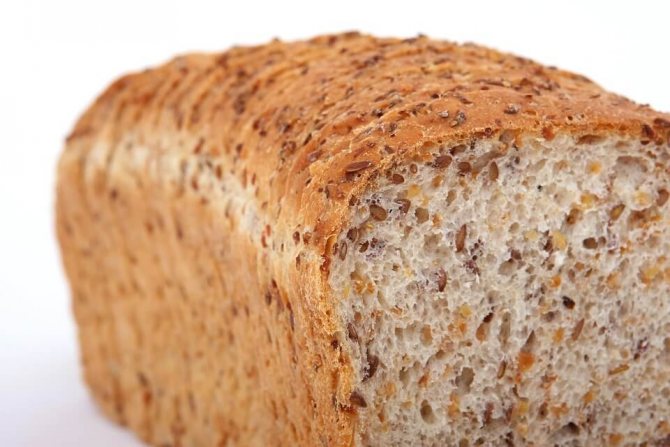
How and how much bread to eat during lactation?
Like all new products, mother should introduce bread into the diet gradually and in small portions. Every time a breastfeeding woman tries a new type of product, she should monitor the baby’s reaction. If you find any unwanted reactions to a certain variety, you should discard it.
There should be very little flour products, be it a loaf, buns, pasta, black Borodinsky or rye bread, in the diet of a nursing mother - two or three slices a day is enough. This way a woman can quickly return to her former shape and not gain excess weight. If the mother is underweight, you should not limit yourself in bread consumption. The main thing is to choose healthy varieties. And this is black Borodino bread or rye, bran products with the addition of dried fruits, nuts, seeds, etc. Even better is to cook your own bread. This way, the infant and the woman herself will receive more useful substances from the bread product, because they will be able to put into the preparation the ingredients that she herself wants.
Yeast-free
Preparing dough with natural leaven from water and flour allows you to preserve a maximum of useful microelements: phosphorus, sodium, magnesium, potassium. The product is well absorbed even with gastritis and pancreatitis.
A special type of yeast-free baked goods – crispbread:
- rye grains are most beneficial for the digestion of mother and child;
- oatmeals are rich in protein;
- Buckwheat contains many vitamins;
- corn satisfy the need for carbohydrates;
- Rice ones quickly create a feeling of fullness and are recommended for snacking on the go.
After making yeast bread, it is not easy to get used to the bread, but over time you begin to like their taste.
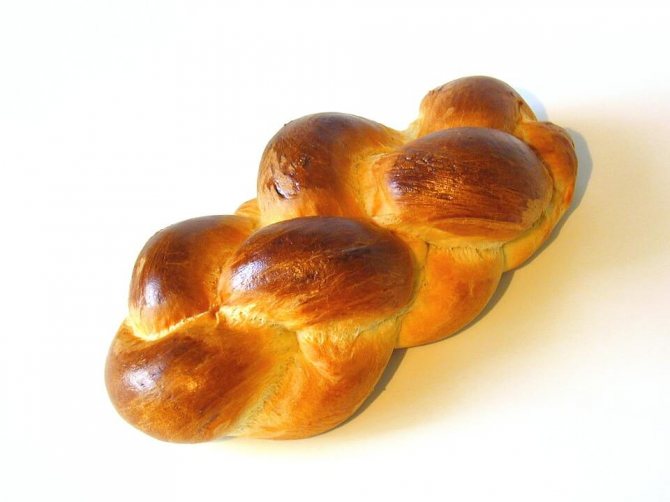
Benefit
- This product contains enough fiber, and this prevents processed food residues from remaining in the body - that is, you will not suffer from constipation or bloating, and in addition, it is better to absorb the food you receive.
- It contains important elements that help the full development of the baby - magnesium and iron.
- If you eat dark instead of white during the entire breastfeeding period, you can protect yourself and your baby from the risk of diabetes in the future.
- If you prefer whole grain counterparts, this only increases the benefits. The shell of whole grains is full of vitamins that will improve the nervous system, also improve metabolism at the cellular level, and additionally form good immunity from the first years of life.
- Carbohydrates are essential for maintaining energy balance and improving mood.
- Dark flour contains a lot of B vitamins, which have a positive effect on the entire body, as they promote normal growth and development, as well as calm and relieve increased excitability. This reduces the risk of your child developing attention deficit disorder in the future and additionally protects your nerves.
- This food contains a lot of vegetable protein. It is safer for the heart than animal milk and is well absorbed by the body.
- The dark one has fewer calories than the white counterpart, so you can stick to your diet if you've gained weight after giving birth, and don't deprive yourself of toast in the morning.
- If you dry a piece in a toaster or in a dry frying pan without oil, the product releases a pleasant aroma, which stimulates the production of gastric juice, and therefore contributes to the normal digestion of food.
Read also: Is it possible to drink coffee with milk while breastfeeding (BF)
Nutritional value of Borodino bread for a nursing mother
Borodino bread has a unique taste and aroma. In addition, due to the cooking technology, it is stored longer. That is why many people prefer it to other varieties.
But there are really important positive consequences of eating Borodino bread during lactation:
- The content of nutrients in this type of bread is quite high. Vitamins of group B, PP, as well as microelements such as calcium, potassium, magnesium, iron, phosphorus, sodium can be distinguished. All these elements are needed by a nursing mother, who spends a lot of energy and vitamins to provide her baby with everything she needs. An additional portion of vitamins will also not be superfluous for the child.
- According to the original recipe, Borodino bread is made without preservatives or flavor stabilizers. This is a definite advantage during lactation, when only natural and healthy products are required for the full growth and development of the child.
- The high fiber content stimulates normal intestinal function. It helps remove cholesterol and toxins from a woman’s body. In infants, it helps prevent constipation.
- Borodino bread is very useful if a woman suffers from hypertension and cancer.
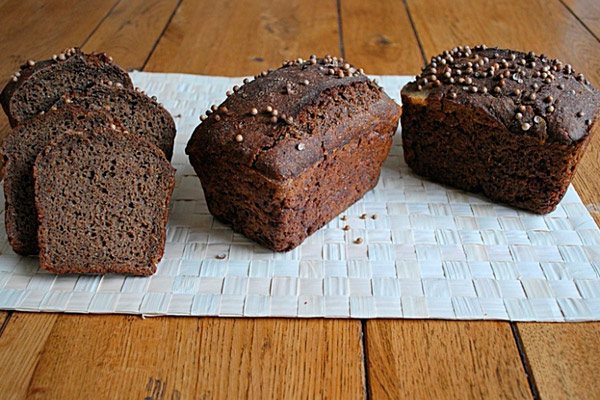
What kind of bread can a nursing mother eat?
When choosing food products for a young mother, you need to start not so much from gastronomic preferences, but from the benefits. Not all types of bread are useful for a woman with breastfeeding.
White varieties of baked goods are very high in calories. They are not recommended for use during breastfeeding. Fast carbohydrates are quickly processed, turning into sugar, it causes appetite, and the body requires more and more portions of food, this is a direct path to weight gain. Most women after childbirth want to get rid of extra pounds, so white bread is not the best option. If there are no problems with weight, then this type of bread will not harm either mother or baby if it is eaten in moderation and in moderation (no more than 200 g per day for an adult).
Brown bread is more beneficial for nursing mothers. The baby’s digestive system accepts rye bread much easier, so this variety is preferable for breastfeeding. Its only drawback is the ability to cause heartburn and increase acidity, but this only affects those people who have problems with the gastrointestinal tract. If you have diseases of the stomach and intestines (gastritis, ulcers, high acidity), then it is better to give preference to varieties made from white flour.
When buying bread in a store, you need to carefully read the composition so that it does not contain various additives (food chemicals, allergens, for example, nuts, etc.). Bakery products with additives can cause a negative reaction in a child, so they should be avoided, giving preference to plain rolls and loaves.
If close relatives of a child are diagnosed with gluten intolerance, then there is a chance that the child will also suffer from this disease.
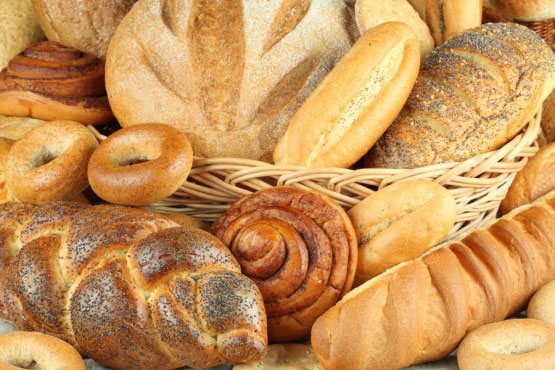
In order not to provoke negative reactions, it is better to give up baked goods during breastfeeding or replace them with gluten-free analogues
Very often you can find bread with bran. Bran is undoubtedly beneficial, as it is an additional source of fiber. Among other things, they contain many minerals and vitamins, promote weight loss, cleanse the body of toxins, and normalize cholesterol. But during breastfeeding, this product should be treated with caution, since excess fiber in the mother’s diet causes colic and gas in the baby.
Yeast bread is also not the best choice for a nursing woman. Yeast, when combined with starch, can cause tummy discomfort in a newborn, which may include restlessness, bloating, colic and indigestion. When purchasing baked goods for a nursing mother, you need to pay attention to yeast-free varieties.
Harm
- People with certain diseases should not eat black bread, like anything made from flour. These are individual sensitivity to gluten, diseases of the gastrointestinal tract (gastritis, increased gas formation, pancreatitis, ulcers, and so on).
- It should not be used by those who are just recovering from a caesarean section.
- Large amounts can harm the baby and lead to colitis or diarrhea. So extreme moderation is important.
- Do not introduce food into your diet before the baby is 2 months old.
How to eat yeast-free baked goods while breastfeeding
You can eat yeast-free bread during breastfeeding from the first months of a child’s life. However, it should be included in the diet gradually so as not to cause digestive upset in the infant.
During breastfeeding, you should consume no more than 200 grams of yeast-free bread per day - in large quantities it can cause constipation.
From a medical point of view, yeast-free bread is more useful during breastfeeding. Its main advantage is that it has a beneficial effect on the digestive process of a nursing woman and baby. But you shouldn’t switch to it completely.
How to choose the right bread for your mother during breastfeeding
In the bakery departments of stores, rye bread is sold in transparent paper or plastic bags with labels. The price, baking date, expiration date, composition, and manufacturer are indicated here.
In appearance, rye bread should be a beautiful brown color with an unburnt top crust, not very porous, but not dense either.
Its characteristic aroma with an appetizing slight sourness is easy to distinguish from other types.
It is important that the bread is baked at a reputable bakery, and not in one of the private bakeries, where an unscrupulous owner can uncontrollably violate the technology and recipe, use chemical flavors, unnatural leaven, and preservatives.
